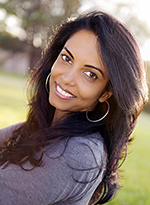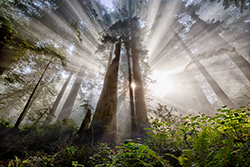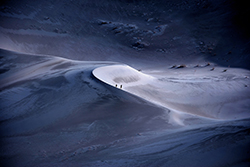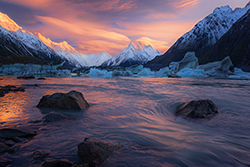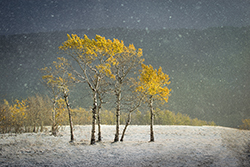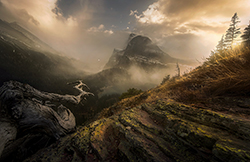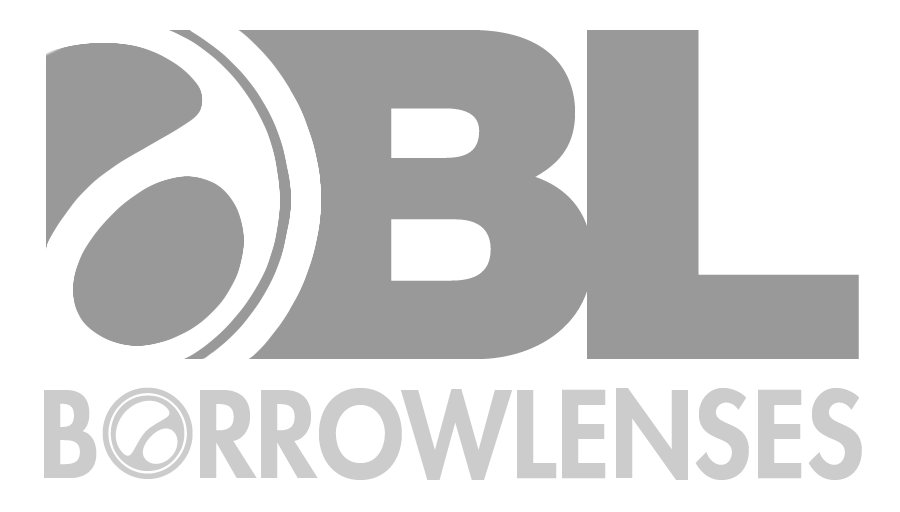
|
|
|||||
|
Featured Photographer, December 2017: Sapna Reddy
We are happy to have Sapna Reddy as our featured guest photographer this month. We appreciate that she gave us some of her time and generously shared her beautiful photography with us! Please visit her links to see more of her work, and to let her know you enjoyed this interview. :: About Sapna Reddy She is a landscape photographer based in Northern California. She is currently pursuing dual careers as a photographer and a physician. As a radiologist she studies images in an attempt to establish diagnosis and cure the human body. As a photographer she aspires to generate images that celebrate the beauty around us and help to heal the mind. Her work has been published internationally including Lonely Planet, Popular Photography, Outdoor Photography, Landscape Photography magazine etc. She is the winner of the summer assignment 2016 for Outdoor photographer magazine, Minimalism assignment for National Geographic and category runner up for USA Landscape Photographer of the year 2016. In addition to incorporation into multiple medical centers to create an ambiance of healing, her images have been used for video conferencing needs by corporations including Google, Gap, Hitachi, Yahoo etc. She also conducts private workshops focused on creative expression via the medium of photography. Select images are available in art galleries worldwide through Yellowkorner franchise. :: When did you first get into photography as an art form as opposed to photography as it related to being a radiologist? Why are so many radiologists also photographers, do you think? Photography as an avenue for creative expression was an evolution of my love for the outdoors and I have been doing that for about 6 years now. As a radiologist I derive immense satisfaction from solving visual puzzles that help to diagnose disease and direct subsequent cure. That intellectual pursuit is conducted in a small dark room mostly in isolation analyzing black and white images. The perfect balance to that is spending time outdoors, celebrating color, light and the beauty of our world. Both fields involve appreciation of light and nuances of tonality and likely attract people fine tuned to visual appreciation. Have personally not seen a predilection for radiologists in photography. Most of the physicians I know who pursue photography are surgeons or emergency room docs. :: I saw you gave a talk where you discussed the role social media has played on creative expression...what do you think the main positive to come out of social media is? What about one or two of the drawbacks that platform has caused? It’s a double edged sword. On one hand it offers a platform for showcasing our art and sharing it with the world. On the other hand it takes up time and effort that could be better spent in improving one’s art. For those trying to garner business it’s a very useful tool. For the emerging photographer I feel it is important to remember that the true value of a picture cannot be measured by how it is received on social media. Some of the best photographers of today lack a social media following simply because it is not a priority to them. My pet peeve is when someone posts a picture of a place that prompts a whole bunch of people to try to photograph the same and in the process destroy it. The biggest drawback I see to social media is the pressure to be popular. Art cannot be rushed, content can. Artists cannot be pressured, influencers can. It is up to the individual to decide where their priorities lie. :: As a Nikon shooter, how did the recent ad campaign for their D850 where they showcased around 30 photographers...all of which were male sit with you as a steward of their gear? Why do you think a company like Nikon failed to showcase any of the numerous female photographers who use their gear? The field of photography is no different from so many other fields that are predominantly male dominated. Women are consistently ignored or dismissed and have to be twice as better to garner half the attention. Am sure the gender bias was unintentional on Nikon’s part. Most likely an oversight that was a product of the local culture. Am glad the oversight received so much attention and hope that in the future there will be more awareness for the gender bias and due credit given to women. There are 23 official US ambassadors for Nikon and 7 of them are women. I look forward to the day when there are an equal number of men and women on that panel and more importantly across the globe. :: The follow up question I have is, how much importance do you place on gear and software? It is important to have gear that facilitates artistic expression. If you are trying to photograph something and are limited by gear then the full potential of that image rendition is obviously not realized. To me both the gear and the software are just tools. Having better tools does not necessarily make one’s workmanship better. But, not having the proper tools can limit even the most talented. :: In looking at your portfolio, I would say you sit on the side where processing is completely up to the photographer as to how much is too much. My question is how much is too much? Where do you draw the line, and how do you respond to those who think composite images become something other than “true” photography? The most enjoyable part of landscape photography to me is the time spent outdoors. Observing the nuances of light, color and textures and waiting for that optimal moment to press your shutter. I spend enormous amount of time in the field both in getting to know my subject and subsequently capturing the scene with the right conditions. A significant portion of the time the images are previsualized and every attempt made in field to optimize the final rendition. The postprocessing I do is mainly to create transitions by dodging and burning or blending exposures. The exposure blending may be to focus stack, correct perspective distortion of a wide angle lens, or to manage a high dynamic range scene. The goal is to create a visual path using light and tonality through my image. When it comes to processing I believe less is better. When reviewing someone else’s work I concern myself more with the aesthetic appeal of the image rather than trying to figure out how much processing they did. To me if they rendered an aesthetically strong image then it was the right amount of processing. The discussion of whether composites are photographs is irrelevant to my work. There have been one or two instances where I felt a composite conveyed the visual story better, for example when shooting the solar eclipse recently, but for the most part I don’t see a role for composites in my workflow. As an artist I feel it is important to keep an open mind and not make assumptions or pass judgements or enforce one’s views/opinions on another person’s art. :: In looking for information online...it seems you’re everywhere? When it comes to making a name for yourself with photography how much added work do you put into get your work out in front of folks, and what method do you find serves you the best, which types of avenues have you found don’t work so well? My primary focus has been on improving my art. I believe that when the quality of your work is good, the recognition will follow. I like to share my ideas, interact with my peers and enjoy teaching. I have been asked to contribute articles to various magazines and blogs and do so on a regular basis. I participate in podcasts that promote discussion on various topics related to photography. Teaching individual/private workshops helps me to connect with like minded individuals and bring more awareness to my art. I work part time at a local art gallery where I also sell my pictures. I feel part of the purpose of my art is to bring pleasure to people. So I spend a few minutes each day either sharing my work or reviewing the work of others and offering my feedback as well as gaining inspiration. What does not work for me is any kind of forum that fosters a sense of competition or hidden agenda. I have a very low tolerance for trolls and mean people in general. I feel it is best not to rent space in my head for negativity. Am a strong believer that when you fill your life with positive energy, the world around you embraces that. :: I’ve read some of your other interviews where you talk about really being focused and a perfectionist when it comes to making images…but also you mention a lot that having fun and not getting too caught up with getting the shot that you forget to have fun. How do you find a balance? The more I photograph the more I realize it’s a path of happiness for me. Being so focused that I lose sight of all other distractions around me places me in a state of meditation, that state where you find your flow. It is not the transient high of nailing a single shot, rather it’s a cumulative experience of well being. You know that old proverb that says”If you want to forget all your troubles put a pebble in your shoe”? But what if instead of a pebble in your shoe you could turn to something so beautiful that consumes you to the point of you forgetting all your troubles? That is what I mean by finding your flow. When I am photographing nature, I don’t have to find balance. Balance finds me. :: How do landscape images have the power to tell a story? What can someone do to help make images that go beyond looking pretty, and actually tell a story? Its always interesting that two people can photograph the same landscape and yet generate images with drastically different emotional impact based on what is included/excluded from the frame, how the mood is rendered, what atmospheric factors are highlighted in acquisition and postprocessing etc. Every time we generate an image it is a form of self expression. A photograph is a visual story. Instead of using words we use visual elements. The arrangement of the visual elements is as important as the words chosen to tell a story. The quality of light rendered through the composition influencing the strength of each visual element. You put a part of yourself/your creativity into the story and how interesting it becomes influences the emotional impact for the viewer. :: What is the scariest thing that has happened to you on a photo shoot? What is life without a few adventures right? When meeting fellow photographers it is always fun to trade stories of adventures that resulted in the shot. Twice I have had falls that could potentially have been fatal, bear encounter in Denali, being caught on Ice Fields parkway in the middle of a total white out blizzard that lasted for hours, laying injured and bleeding at the bottom of a canyon in the Zion Wilderness, getting lost at night in the forest in Patagonia, realizing I had lost sensation in my toes at the arctic circle, pissing off a King Cobra…and the list continues. I try to be as careful as possible on my trips but being out in the wild inspite of our most carefully laid plans can sometimes turn out to be a harrowing experience. :: What is your favorite piece of non-photography gear and why? My shoes. Having comfortable hiking shoes is key in the pursuit of landscape photography. Believe me, that is wisdom gained the hard way. :: As a doctor, I’m sure some folks have wondered, why also pursue another career with photography? Why add the stresses that come with making the art into a business? The best way to commercialize your art and not feel pressured about it is to be in a financial situation where it is not crucial whether you generate an income or not from it. As a result you have immense creative freedom and are not trying to generate art for consumption/sales but rather for creative self expression. Please don’t get me wrong. I know and look up to many photographers who are good at doing both. But not having to worry about financial aspects frees up your mind to focus more solely on the creativity. A large portion of my sales are to hospitals and medical centers where the images are used to create an ambience of healing. The profit generated from my photography career is directed to charity. In doing so I feel I have added value to my art not just in a monetary sense but on an emotional and spiritual level. :: Sometimes I tend to feel like of all the genres of photography, Landscape photography is the easiest to do with the most wow factor…which is why it seems to always be gathering more and more photographers…how do you see landscape photography in relation to other types of photography? Our current society has the majority of us sitting in cubicles staring at monitors, day after day. That leaves most of us with a yearning to explore wide open spaces, and to transport ourselves to exotic locations. So we have more number of people traveling and exploring and sharing their experiences. We live in an age where more people are photographing than ever before. Its true we are seeing a ton of landscape pictures from all around the world. Part of it is the availability of gadgets that take pictures of all the moments in our lives, and part of it is the global sharing phenomenon which makes us aware of all those moments happening. I agree that landscape photography is easy to do, but to do it well is very difficult. It demands patience, stamina, endurance, resilience, talent and a deep rooted love for nature. You could get away with a lot less if you were photographing a potato in the studio with your own light source for example. I believe the enthusiasm for landscape photography stems from the inner wanderer/explorer within each of us. :: I see you enter quite a few photography contests...what benefit do you think they bring to photographers? What drawbacks, if any do you see with them? In my entire photography career I have entered about 5 competitions. It is usually because my family or friends come across a competition and ask me to enter it. Have been lucky in winning more than I expected. Winning a competition occasionally from a credible platform such as National Geographic, helps to enhance your credibility and bring more attention to your work. However art is subjective. Winning a competition just means your image established an emotional connection with the judges. It means your work found the right audience for that specific recognition. That does not necessarily make the work better or worse. It just is. However the true measure of the value of the work in my opinion lies within the artist. Accolades cannot replace or supercede the immense personal satisfaction that comes from the actual process of acquisition and rendition of a solid image. :: What is one thing about your photography that you still struggle with? When you pursue photography as a dual career some people feel you are not serious about it. What they may not realize is how much passion goes into doing something that is being done because you want to, not because you have to. I love medicine and I love photography and I am equally serious about pursuing both with passion. Yes, it does curtail the time that I can spend in either profession, but at the same time this fosters deep appreciation for how precious time is. I sleep a lot less than the average person, and wish there were more hours in the day for the pursuit of my passion. I would like to thank Aperture Academy for this interview. I am humbled by the incredible talent you have showcased on this platform and am truly honored to added to the group. |
"The biggest drawback I see to social media is the pressure to be popular. Art cannot be rushed, content can. Artists cannot be pressured, influencers can. It is up to the individual to decide where their priorities lie..."
Photographer Spotlight Interviews
|
|
 |
Other Cool Stuff→ Past Workshop Photos → 72dpi.com → How-To Articles → Photographer of the Month |
 |
Contact Us→ Contact Us → About Us → Site Map |
© 2009-2024 Aperture Academy, Inc.
